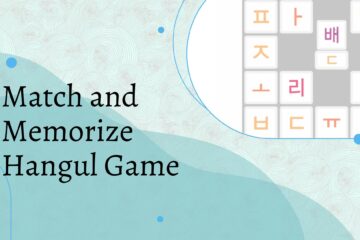Let’s get into some quick vocab rundown of clothes in Korean. I’ll go through it all “머리부터 발끝까지” head to toe! Also with some terms and verbs to describe clothes, and sentences to tie it all together and help you start putting together some yourself.

Korean Clothing Vocab
옷: Clothes
원피스: dress
드레스: dress (used for fancier dresses)
양복: suit
블레이저: blazer
교복: school uniform
Tops
셔츠: shirt
티셔츠: t-shirt
탱크톱: tank top
터틀넥: turtleneck
스웨터: sweater
카디건: cardigan
Outerwear
재킷: jacket
외투: coat
가죽코트: leather jacket
파카: parka
우비: raincoat
점퍼: windbreaker
Bottoms
바지: pants
반바지: shorts
청바지: jeans
치마: skirt
점프수트: jumpsuit
레깅스: leggings
오버롤: overalls
Footwear
신발: shoes
부츠: boots
샌들: sandals
스니커: sneakers
운동화: sneakers (no big difference – like sneakers vs runners, etc.)
하이힐: high heels
양말: socks
스타킹: stockings

Describing Clothes in Korean
To help build out your Korean here are some describing verbs to use, also useful to pair with other appearance-related vocab. These are some quick verbs for talking about clothes:
벗다: to take off
입어보다: to try on
딱 맞다: to fit on right
크다: to be big
작다: to be small
무겁다: to be heavy
가볍다: to be light
헐렁하다: to be baggy/loose clothing
꽉 끼다: to be tight
딱 맞다: to fit snuggly
비싸다: to be expensive
싸다: to be cheap
할인 하다: to be discounted
낡은: old/worn out
새: new
이태용은 헐렁한 청바지를 좋아요: Lee Taeyong likes his baggy jeans
저는 어제 새 코트를 입었다: I wore my new coat yesterday
낡은 무거운 재킷을 버렸다: I threw away my old heavy jacket
How to say to wear in Korean
Now one part of talking about clothing a lot of people struggle with is how to say wear! Korea uses multiple words for ‘wear’ depending on the item whether it’s shoes, hats, or pants. I’ll break it down quickly now and hopefully, this can help you out.
입다: clothes (sweater, skirt, dress)
쓰다: for on your head (hat, glasses)
신다: used for shoes and things on your feet (shoes, socks)
매다: when you tie or fasten (shoelaces, neckties)
메다: for items over on your shoulder (bag, backpack)
끼다: wearing on your hands and/or fingers (ring, gloves)
Also, I want to mention clothing has some key related Sino-Korean but in this post I just kept it simple this time. I stuck to more common clothing vocab and less so traditional. You’ll see it in hanbok, 한복 the 복 is used in other clothing words like uniforms, suits, etc. You may have already noticed it appearing a bit!



0 Comments